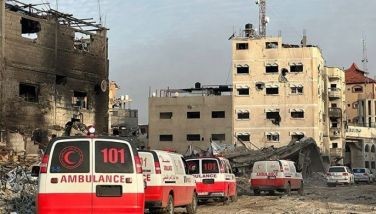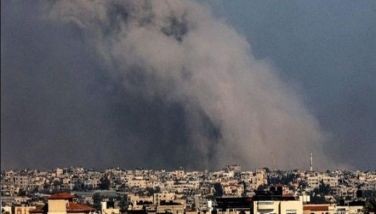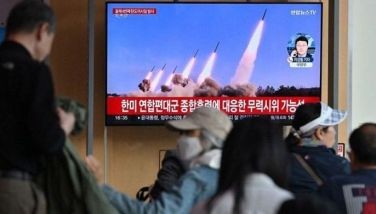Feature: Syrians suffering economic hardship
DAMASCUS (Xinhua) - In al-Shaalan market in the Syrian capital of Damascus, where many food and clothing shops are dotted around, fewer people now walk around here to buy expensive items.
Most shops are empty of consumers, and only shops that sell the cheap Flafel sandwiches are still busy.
In order to cope with the economic hardship as a result of the long-standing domestic crisis and the US and EU economic sanctions, most Syrians have to abandon fancy restaurants and opt for cheap dinners or buy low-priced take-away food.
A man in his 40s waiting for his turn to buy sandwiches said " It's the only thing in this country whose price is still rational and affordable for most Syrians. We used to eat Falafel once a month, but now because of the unprecedented expensive living conditions, we eat it every week."
As part of the austerity measures, a lot of Syrians cut large spending on big-ticket items and stopped buying expensive foodstuff, even like meat, from their food list.
Syrians complain of the soaring prices of all consumer items, which have made most items out of reach for Syrians amid reports that the country's inflation rate is now one of the highest in the world.
Official figures have put the inflation rate at around 50 percent, but unofficial estimates say it's about 300 percent, further worsening the Syrians' livelihood.
Despite the government's efforts to control markets and bring the exchange rate of the Syrian pound against the US dollar back to normal levels, Syrians still grumble about the government's inability to reduce the soaring prices of consumer items and foodstuff.
The central bank of Syria has strongly intervened in the exchange market and its policy was proved constructive in pushing up the price of the pound. The dollar is now less than 170 pounds in the black market, down from 300 pounds two months ago.
Meanwhile, Syrian Prime Minister Wael al-Halqi recently confirmed that there is a large amount of reserves of hard currency, brushing aside concerns over the country's ability to secure people's needs of commodities.
Yet, a recent statement by the United Nations Economic and Social Commission for Western Asia (ESCWA) said that four million Syrians are subject to famine, or below food poverty line in the ESCWA own standards. ESCWA also indicated that another eight million Syrians now live under the minimal poverty line, while 18 million live below the maximal poverty line.
The commission also noted in its report that "300,000 public sector employees are considered living under the food poverty line, " which is a volume that cannot be covered by donations.
The Syrian economist Abed Fadliyeh told local websites that the solution to the Syrians' hardship is to guide consumption amid rising food price, suggesting that prices have surpassed the citizens' purchasing power.
He pointed out that there are some problems the Syrian families are facing: a decrease in the household income as a result of reduced business activity, the rising and uncontrolled consumption prices.
- Latest
- Trending



























